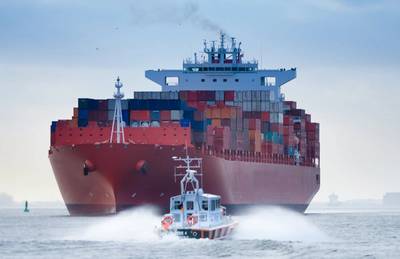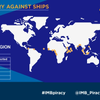European Shipowners Want 40% Local Production of Clean Fuels
The European Community Shipowners’ Association (ECSA) has released a position paper on a European Maritime Industrial Strategy as part of the new Clean Industrial Deal, saying that European shipping is a geopolitical asset for Europe and a cornerstone of the energy, food and supply chain security of the continent.
European shipping controls 39.5% of the global tonnage. ECSA says that the European Maritime Industrial Strategy must be a core pillar of the upcoming Clean Industrial Deal, which President von der Leyen committed to put forward in the first 100 days of the new Commission.
In the position paper, European shipowners put forward recommendations to enhance the competitiveness of European shipping while delivering on the green and digital transition:
• Keep European shipping internationally competitive: maintaining a level playing field between European shipping and its non-European competitors is crucial for retaining shipping companies in Europe, and for fostering a thriving European maritime cluster. A fit-for-purpose regulatory and taxation framework is crucial to ensure that EU shipping companies remain globally competitive.
• 40% production of clean fuels for shipping in Europe: scaling up manufacturing capacity for clean shipping fuels in Europe is crucial for the green and digital transition of shipping. At least 40% of the clean fuels needed for shipping to reach its FuelEU targets should be produced in Europe, aligning with the benchmark of the Net-Zero Industry Act.
• 40% of European industrial capacity for innovative shipping technologies: Europe is a leader in state-of-the-art innovating technologies for the green and digital transition of shipping. To retain and capitalize upon this leadership position, Member States should swiftly implement a manufacturing benchmark of at least 40% under the Net-Zero Industry Act for key technologies.
• Ensure access to finance for key investments: enhancing access to public and private financing is crucial to unlock the investments needed for the green and digital transition. The revenues of the EU ETS should be spent on energy transition-related activities to decarbonize shipping. Different financing and funding tools involving banking finance, capital markets and private investors are needed to enable better risk sharing of innovative and transitional projects.
• People-centered transition: a European Maritime Industrial Strategy must acknowledge the need to invest in new skills for the green and digital transition of shipping. 800.000 seafarers need to be reskilled for the green transition by mid-2030. The Commission and the Member States must support the joint efforts of the social partners, to make our workforce future-proof.














